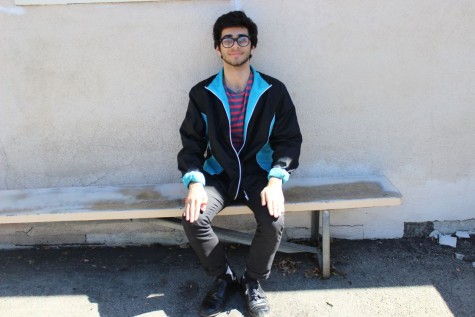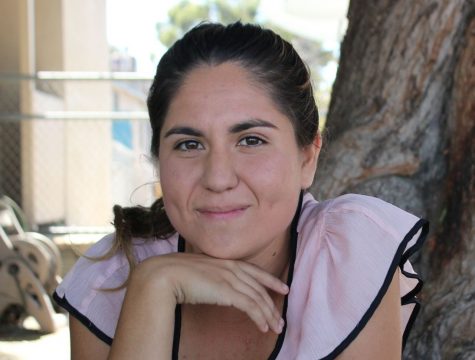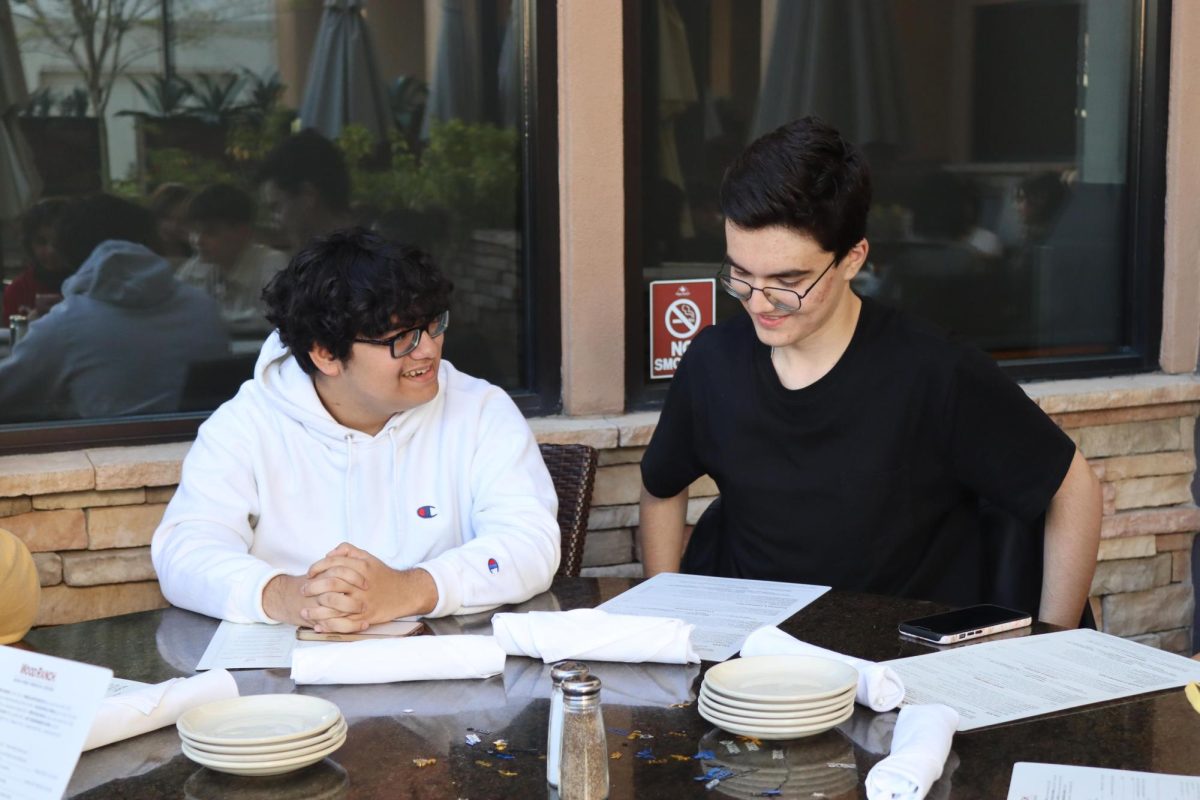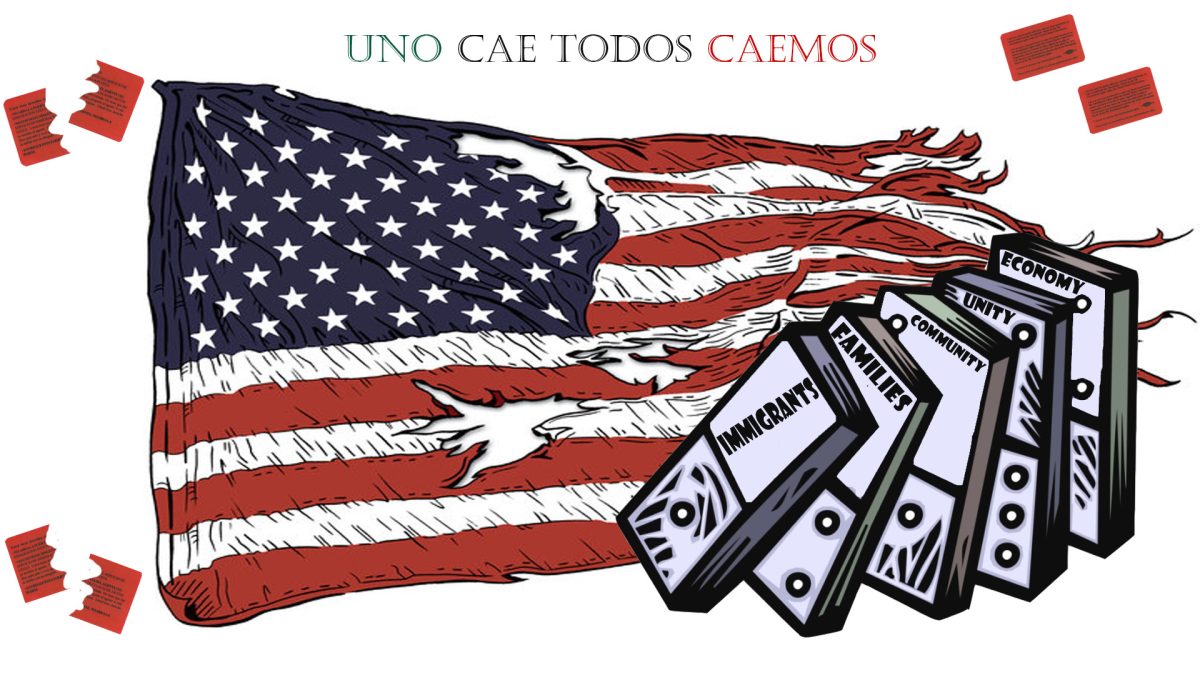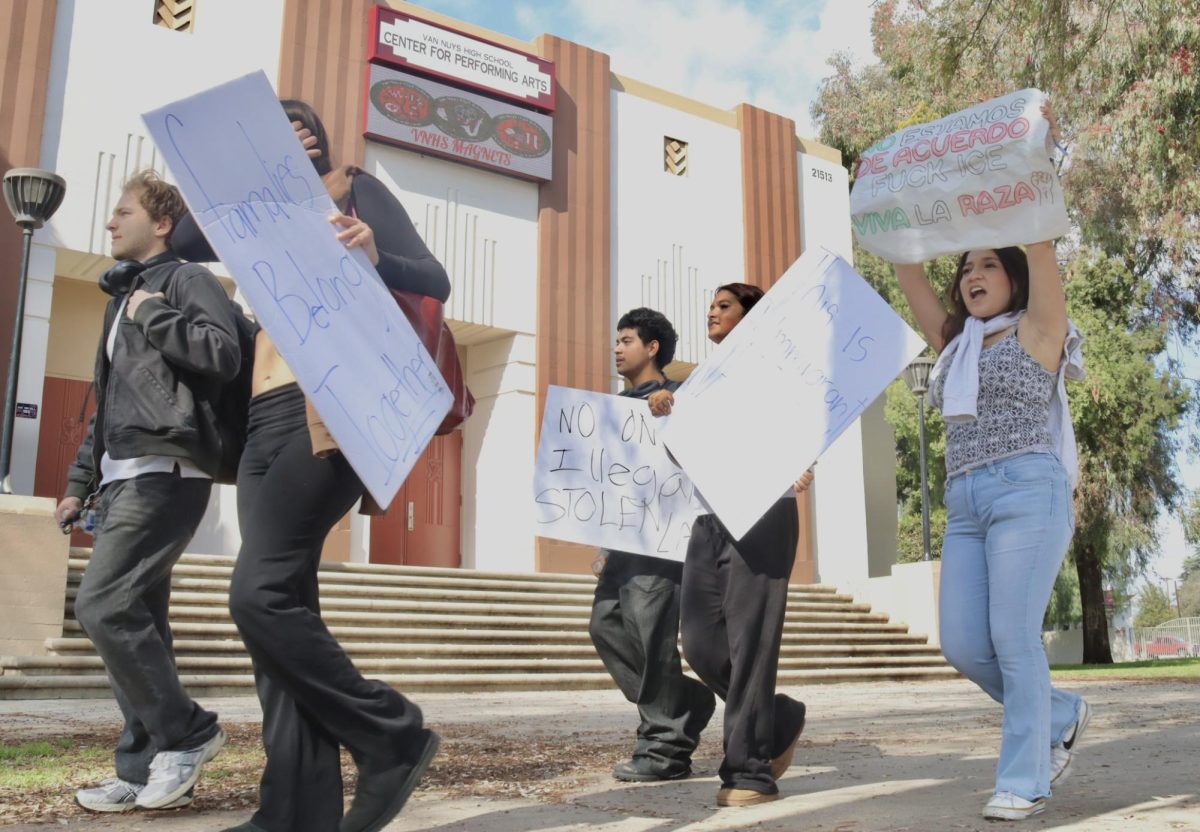School campaign focuses on safe social media use
October 23, 2015
The Los Angeles Unified School District (LAUSD) is pushing its “Now Matters Later” initiative, tackles the problems of the digital age such as sexting.
“This program will reach out to our students, our parents, our staff and our community… and hopefully
eradicate this dangerous trend.” Steven Zipperman, the Los Angeles Unified Police Chief said on Sept. 22, according to a Los Angeles Times article titled “L.A. schools want kids to think before they sext.”
The school has been at work for a while when it comes to raising concerns about internet awareness among
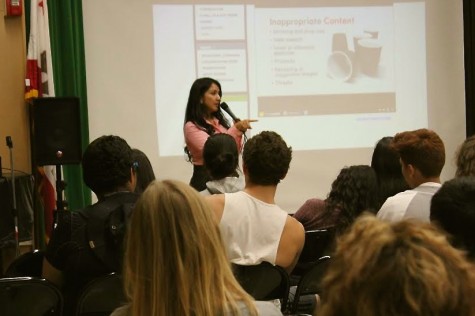
Presenter Monica Pinedo disucusses the dangers of putting too much personal information online for the public to see.
students.
“We’ve been doing this all along… the risks that we all take could have an impact on our lives in the future,” Principal Deb Smith said.
In addition to pushing the campaign forward, on Sept. 30 in the Multi- Purpose Room, a seminar was held by Monica Pinedo, a Special Operations Administrator at the Office of the Los Angeles City Attorney. She discussed not only the dangers of sexting, but how putting too much information on the internet can really affect someone.
“There is a dark side to the internet,” Pinedo said as she described the different ways one can be kidnapped from a seemingly harmless online interaction.
She started off the assembly with a topic that set the gloomy, raw mood of the whole seminar: human trafficking. She discussed how there are people on various social media outlets, especially Instagram, who bribe other people with various items like tickets to gain one’s trust. They then take their main course of action and manipulate that same trust by kidnapping them and adding another member to their sex-trade ring.
The seminar also put a focus on the dangers and consequences of sexting.
On the front page of the campaign website there are multiple images and posters featuring one main slogan: “Did you know…” all followed with their own captions that have to do with sexting and the consequences.
For example, “Did you know…once you send a sexually explicit image, it could be shared with anyone? Think… before you send.” reads one poster. Many of these posters will be posted at the hallways of various LAUSD high schools.
A short video was shown about sexting. It was split into two parts. The first scenario is a boy texting a girl requesting a naked picture; the next question asks “What do you do?” and the audience is
presented with “Send it” or “Don’t Send.” The video then shows both the effect of sending the picture and not sending.
The first choice is “Don’t Send,” which ends quickly. The girl sends a text clearly stating she doesn’t want to send and moves on with her work. The other option, however, presents a domino effect of her picture getting around the school and eventually to her own father.
“What you do now? It may not feel like it matters, but it could bite you later,” Smith said.
Every video shown, in fact, presented an idea that wrong decisions on the internet leads to a twisted domino effect that can spiral one’s life into unknown territory. The initiative seemed like a call to action for all kids who treat their online profile and life with little care or concern.
In the end, three volunteers came up and expressed what they learned. One took away lessons that are applicable to the internet.
“I learned today don’t post anything you don’t want people to see,” junior Greg Noorigian said.
Another took away lessons that are applicable in any circumstance of life.
“I learned you shouldn’t judge people, no one’s perfect,” junior Brandon Tapia said as a number of people in the crowd collectively said “aw.”
One even took a personal approach to the issue.
“I learned today to just be nice to people. I’m sorry if I was rude to any of you guys,” junior Jananay Lewis said.


